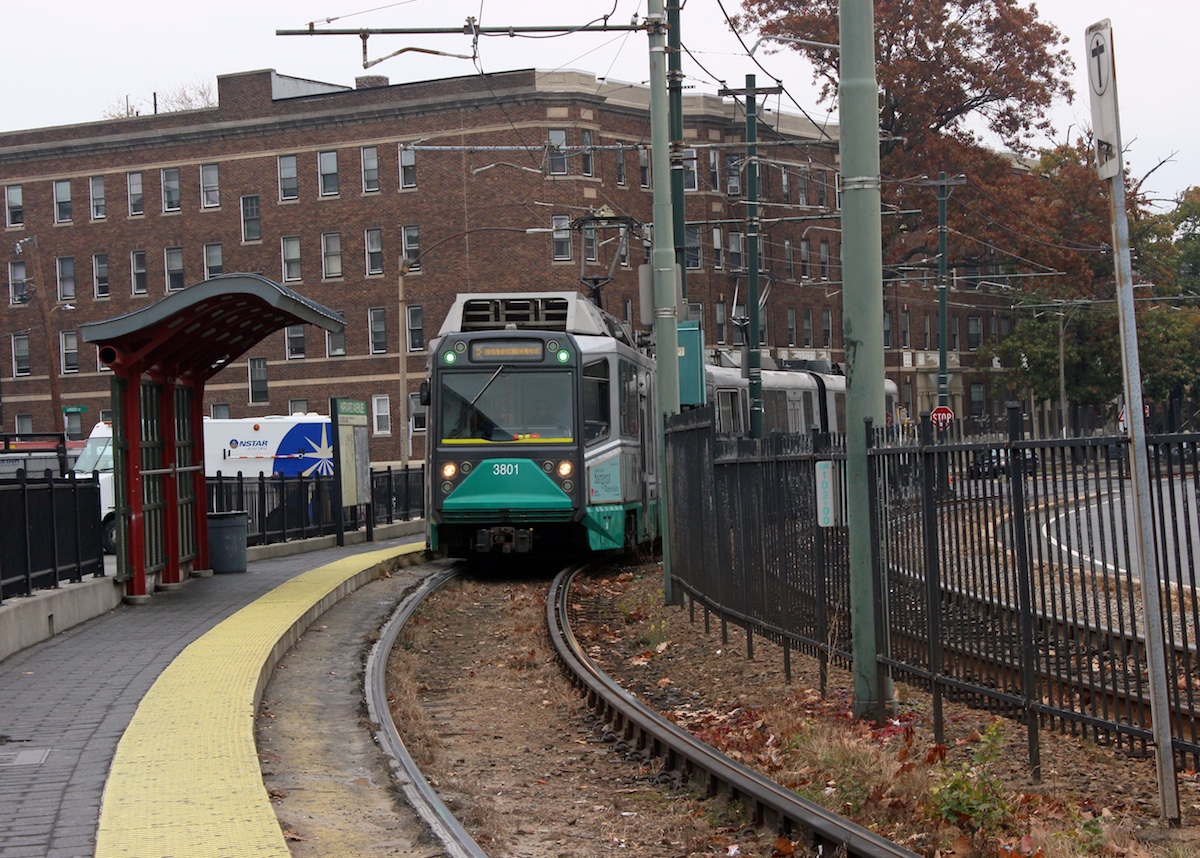The Green Line Extension Is Way Over Budget

Photo by Olga Khvan
The highly touted project to extend the Green Line from East Cambridge through Somerville and into Medford is in jeopardy.
MBTA officials revealed at a board meeting Monday that the much-needed 4.3 mile extension is facing additional costs that could add $1 billion to a budget that is already at roughly $2.3 billion.
The first three stations of the project were originally budgeted at $387 million, but since Skanska Kiewit with its unique procurement arrangement took over, the price for the new facilities at Lechmere Station, Union Square, and Washington Street in Somerville has ballooned to $898 million. Officials said that the cost increases are due to the surface of the sun-hot Boston construction market, recently discovered soil pollution, and geological issues along the planned route.
The state could spike the project, but transportation officials appear reluctant to pursue such an option due to the advanced stage of the project and the $1 billion in approved federal funding.
According to the State House News Service, officials are considering scaling down the project by possibly removing the multi-use path planned to run parallel to the line or building simpler stations along the route. Breaking up the phases of the project and putting them out to bid is another possibility under consideration.
“Everything’s on the table, and everything includes canceling the project, but that’s not where we want to go, but we need a project we can afford to build,” said Transportation Secretary Stephanie Pollack.
MBTA Interim General Manager Frank DePaola said he was “surprised” by the huge increase in the price tag for the project.
“There is room for negotiation and we do negotiate these things down, but there’s no room for us to negotiate this number down to this number. There’s fundamentally a budget shortfall here that we have to address,” said DePaola.
The project has been underway since breaking ground in December 2012 when the possibility of federal funding was still up in the air.
In an unusual twist, an organization Pollack once worked for, the Conservation Law Foundation, established the legal framework for the project to happen with an air quality lawsuit over the Big Dig in the 1990s. The project is required as part of a settlement to offset the additional air pollution created by the projects of the Big Dig.
“The full Green Line Extension is not only a critical regional transportation project, but also a legal requirement under the federal Clean Air Act and as such we need to find good solutions to ensure completion of this project. CLF stands ready to help,” said the organization in a statement.
Governor Charlier Baker expressed a neutral stance on the latest development with the project.
“The Green Line extension is important to alleviating traffic congestion and spurring economic growth, but it cannot be pursued at just any cost to taxpayers or at the expense of transportation infrastructure statewide. While these newly projected cost overruns are very significant and troubling, the cooperation pledged by community leaders and partners to explore other funding mechanisms and cost savings is a step in the right direction,” said Baker in a statement.
Somerville Mayor Joe Curtatone expressed confidence in the project and the state’s ability to make it work financially. Curtatone said he envisions a situation where the project receives creative financing solutions around certain stations in a manner similar to what happened with the Assembly Square project.
“They’re going to trim down that projected increased costs by reexamining scope and looking at additional sources of funds, beyond state bonds,” said Curtatone.
Curatone said he was “not shocked, but surprised” by the new price for the Green Line extension.
“Transit projects can be complex. When you’re in a down economy, infrastructure is easy to build, when you’re in a good economy, it’s harder and more expensive,” said Curtatone.
The project has sparked some property speculation and encouraged new development along its planned route. Some of the development has raised fears of gentrification among longtime residents, due to what happened in Davis Square in the early 1980s.
The Red Line’s expansion into Davis Square brought rent increases and soaring property values to a place with little space for new development. Unlike Davis, the area most directly affected by the project, Union Square has underutilized land and available parcels plus extensive planning to help meet the inevitable spike in demand without pushing out longtime residents.
Wire material from the State House News Service was used in this post.

